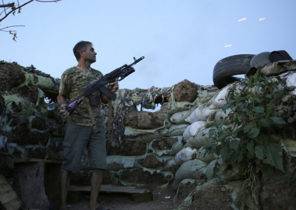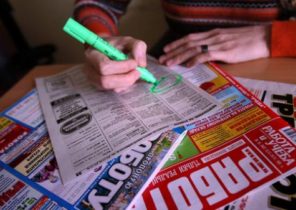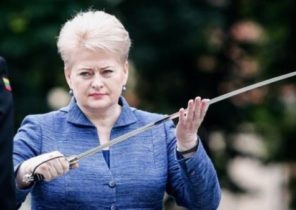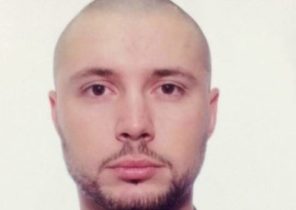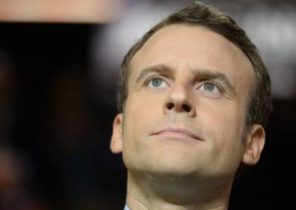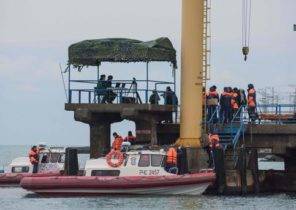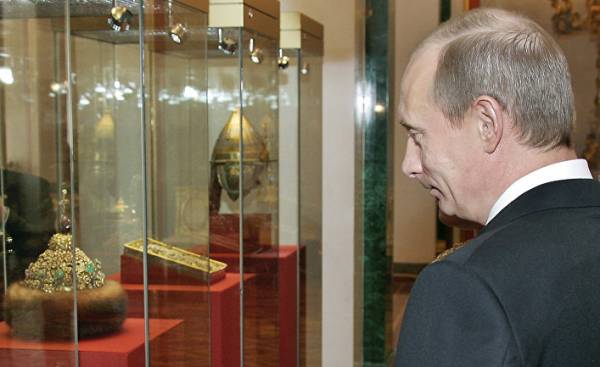
Vladimir Vladimirovich Putin has forgotten about it. In February marks the centenary of the revolution that marked the end of tsarist Russia developed into the October revolution and led to the emergence of Soviet Russia. But whose achievements deserve celebrating? Vladimir Ilyich Lenin, whose body still lies in red square? Alexander Fedorovich Kerensky’s, full of romantic fire and expelled the Soviet Bolsheviks? Nicholas II abdicated in the name of saving the monarchy, but thereby defines it only for a tragic end? Collective memory in Russia is contradictory.
The Russian President has other worries. Moscow is not looking back. 100 years after 1917, it bears a trail of victories and wounds of the tragic and contradictory memories of nostalgia. In the “American century” Russia are faced with wars and revolutions. She stumbled all the time, and again rose to his feet. The new century is the next big challenge.
Under Putin, Russia has overcome the stage, after which it prematurely took the role of “power, experiencing your sunset.” The means by which it was moving forward, was sometimes cruel, but it was bringing results. Perhaps she is waiting for the sunset in the future, but for now she once again boldly returned to the mill superpowers. For it to it is respectful of the new President of the United States. Now Russia wants to use its cynical investment in Syria and Ukraine to the West in the opposing coalition of the BRICS and through the exit into the Mediterranean sea.
In 2017 the international arena of the political game is changing. Even Washington now Donald trump wants to rethink their status quo instead of trying to save it. How these changes will play into the hands of Russia? Putin was rooting for trump, now everything should be clear. What if the new strategy will turn against him? Then the two nuclear powers is not joking.
The EU has long stablewski a spoke in the wheels of Russia, bursting at the seams. He broke up with his significant part of Britain, provided him with nearly 30% of their military resources (the Kremlin, where he once wondered how many divisions has the Vatican, these figures are not indifferent). Only three or maybe four decisive elections in 2017 to apply the EU’s fatal blow. Reducing its membership, the EU would be freed from the obsession with bureaucracy and agreement between the various parties, from democratic spaces of disorder in the neighboring Eastern and Balkan countries, from the danger of the precedent of shared sovereignty. Revenge nation-States would give a weight of sovereign democracy of Putin. Divided Europe is a weaker and not so terrible competitor in the Balkans and the former Soviet republics. But it’s also more unstable, and Moscow has repeatedly experienced the tragic consequences of the fragmentation of Europe.
The populist forces of the eurosceptics, more or less openly supported by Russia, could not be more close to that to get into power or to create conditions of ungovernability of the state. However, it should at least once to give vent to nationalism, and things take an unpredictable turn. The elections can influence (and Russia know that, as in any other country), but it is impossible to predetermine. In France, the confrontation seemed to be unfolding between marine Le Pen (Marine Le Pen) and Francois Fillon (Francois Fillon), each of which is Pro-Russian stance. But then came Emmanuel macron (Emmanuel Macron) — the person is able to breathe new life into the European project. In Germany, Angela Merkel shows stubborn resistance, and Martin Schulz (Martin Schulz) — a dark horse.
Russia is proud of the fact that she is “Eurasian” power. Her geographical position gives her a complete basis. Its major competitor on the continental space is China, not the US. With the release of TRANS-Pacific partnership the new administration of U.S. President initiated the retreat with a spirit of protectionism. XI Jinping tried not to miss a chance to make China the center of free trade. Dominant in Asia, China would leave Russia, which lags far behind in economic terms, outside of the game. In the game of Kissinger’s three cards (Washington, Moscow and Beijing) Russia does not want to be the weak link.
In the middle East and the Mediterranean, Russia has achieved outstanding success. Now they need to fix: in the shifting Sands of Syria, among the Libyan groups in the fight against ISIS(banned terrorist organization) into a relationship with the most difficult allies such as Iran — in acrobatic maneuvers between Israel, Egypt and Saudi Arabia. Moscow saved the regime in Damascus, but she still failed to establish peace in Syria. She needs to keep terrorism outside its borders, trying to avoid a situation in which it is bogged down in a Mediterranean plant, in a swamp.
In Ukraine, Putin will try to resolve intractable: he tries not to give up and get relief, or the lifting of the sanctions regime. Most important meeting this year will be the first meeting with the President of the United States. To come to an understanding, both parties will have to submit to each other mutually beneficial terms. Being excellent businessmen, Putin and trump can do it. If Moscow and Washington agree with each other, all the rest will be difficult to resist.
One hundred years ago, the king abdicated. The Russian President has no such intentions, no reason for this. He wants at all costs to avoid that in 2017, the restored international status has come under question. Vladimir Putin made his motto the words of Catherine the great: “Winners are not judged”. But you need to be a winner.
